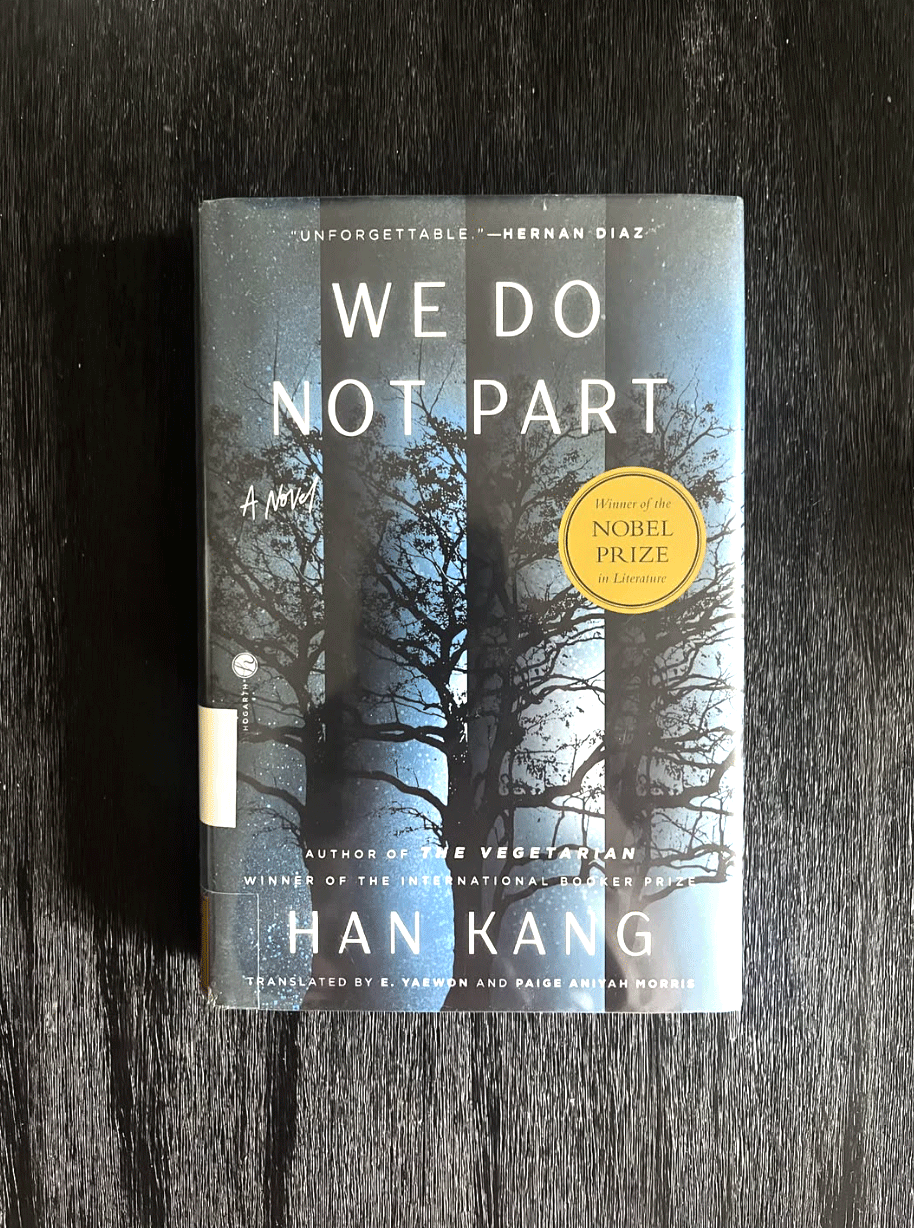We Do Not Part
We Do Not Part: A fixation on hands and touch and how we can mend and create but also pierce and cut … and maybe, too, a declaration that idleness (“idle hands” and all that) can prevent something from being revealed.
This novel by South Korean Nobel-winning writer Han Kang (author of Booker-winning The Vegetarian, which I have not read), describes the relationship between two friends, as one (Kyungha) is called to the hospital by the other (Inseon) after a gruesome hand injury.
But it then turns into an exploration of the Jeju massacre — a post-WWII period of tens of thousands of murders at the hands of the South Korean government — and how Inseon’s mother bore the trauma of her family’s part in this tragedy.
This piece of history is, I suppose, the crux and point and plot of the book. Yet my fascination lies with Kang’s obsessive attention to physical feeling through our limbs, particularly as it pertains to Inseon’s seemingly odd request from her hospital bed to Kyungha: Please take care of my bird, Ama. “People say ‘light as snow.’ But snow has its own heft, which is the weight of this drop of water…People say ‘light as bird.’ But birds too have their own weight…The feeling of Ama’s two feet on my right shoulder, rough against the weft of my pullover. The warm softness of Ama’s chest as perched on my left index finger. Strange, the sensation of contact with a living thing, how it can remain imprinted on the skin. As if touch alone can singe and break flesh. The delicate press of those birds against my skin remains untouched.”
We Do Not Part feels like a novel about big discoveries (about, say, a piece of destructive history…) that embed in one’s psyche mostly because one’s body is physically primed to “feel” it.
originally published on instagram

